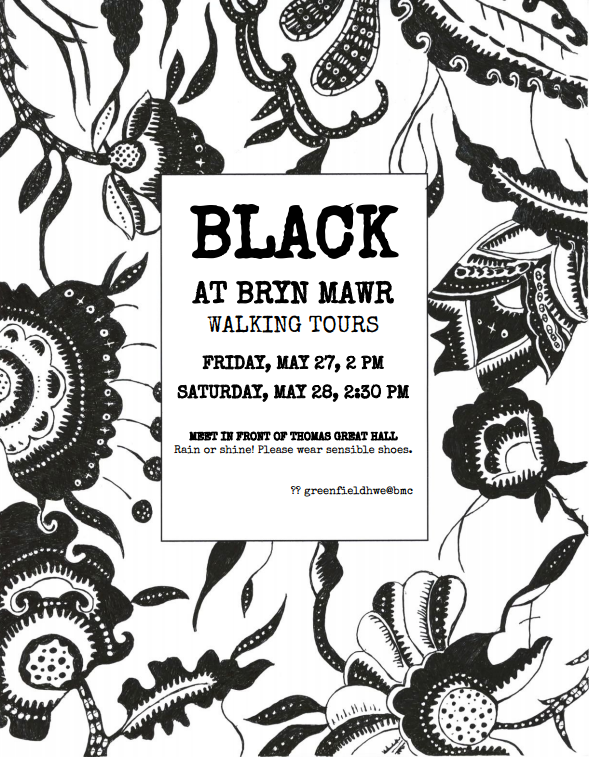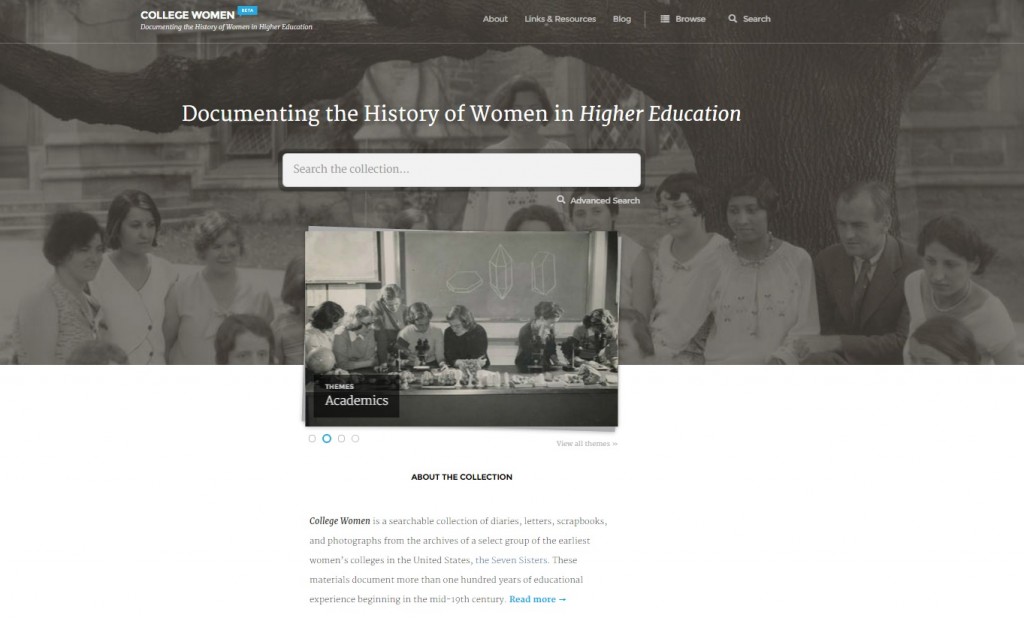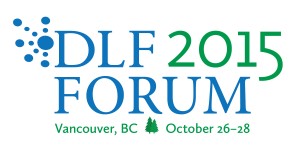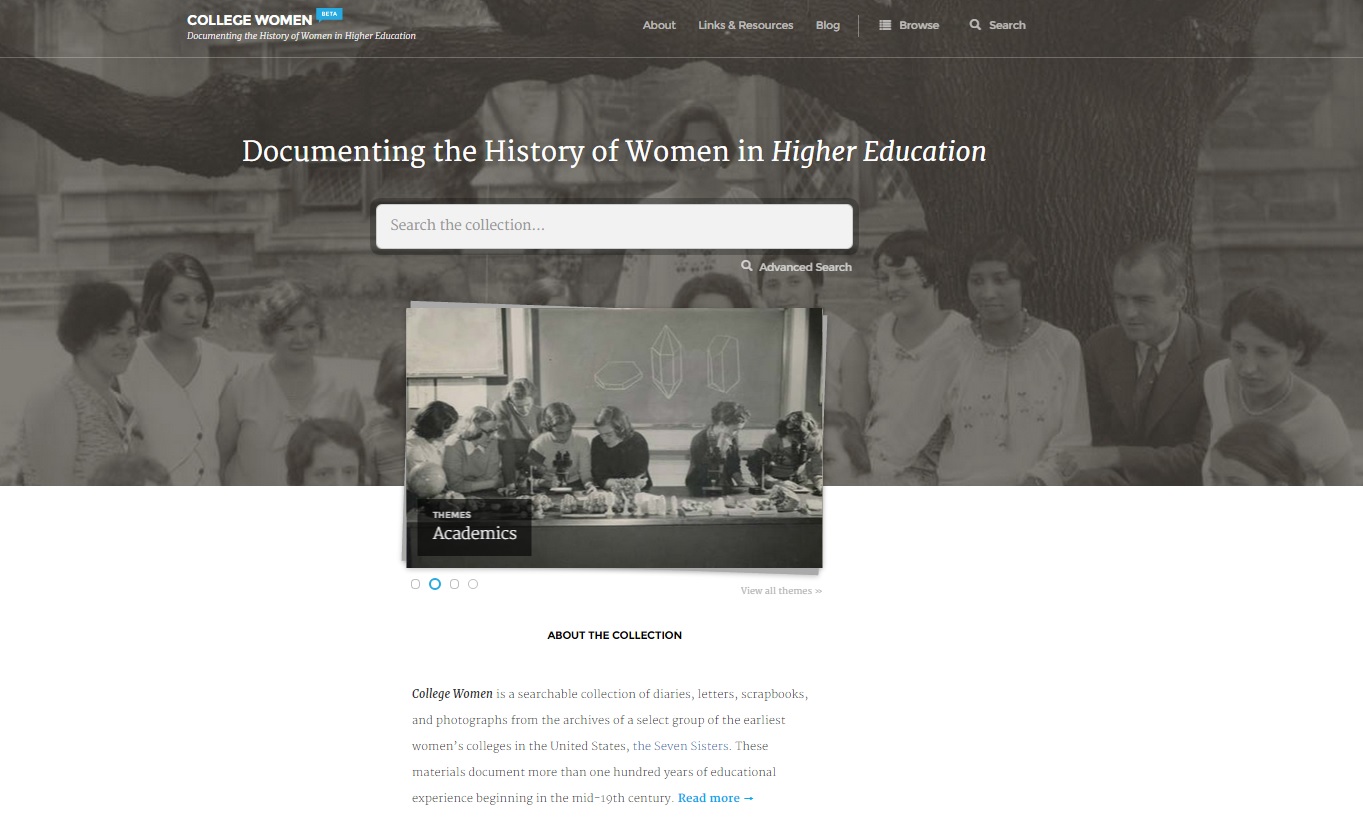Category Archives: News
NEH Awards $260,000 Grant to Expand ‘College Women’ Archives Portal
Featured
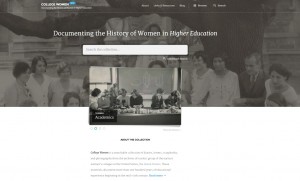 In Summer, 2015 we announced the beta launch of the cross-institutional archives portal College Women: Documenting the History of Women in Higher Education (collegewomen.org), a collaboration between the institutions once — and often still — known as the “Seven Sisters.” The site development was funded by a Foundations planning grant from the National Endowment for the Humanities, and allowed us to begin imagining a resource that could serve both researchers and the casual browser interested in the shared histories of women’s education at some of the first U.S. women’s colleges in the Northeast. Today, we can now share that the National Endowment for the Humanities has recently awarded a Humanities Collections and Reference Resources grant to Bryn Mawr College that will allow us to expand the digitization project with our seven partner institutions beginning in Summer 2016.
In Summer, 2015 we announced the beta launch of the cross-institutional archives portal College Women: Documenting the History of Women in Higher Education (collegewomen.org), a collaboration between the institutions once — and often still — known as the “Seven Sisters.” The site development was funded by a Foundations planning grant from the National Endowment for the Humanities, and allowed us to begin imagining a resource that could serve both researchers and the casual browser interested in the shared histories of women’s education at some of the first U.S. women’s colleges in the Northeast. Today, we can now share that the National Endowment for the Humanities has recently awarded a Humanities Collections and Reference Resources grant to Bryn Mawr College that will allow us to expand the digitization project with our seven partner institutions beginning in Summer 2016.
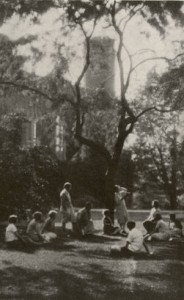
A Poetry Hour on Bryn Mawr’s Campus (1930) via collegewomen.org.
The College Women archives portal brings together digitized writings and photographs from our seven libraries, dating from the mid-nineteenth through the early twentieth centuries, and documenting the experiences of students attending Barnard, Bryn Mawr, Mount Holyoke, Smith, Vassar, Wellesley, and Radcliffe (now the Schlesinger Library, Radcliffe Institute for Advanced Study, Harvard University). In the first phase of our work, the partners established a metadata schema, built and tested the beta site, and developed an approach to building subject-focused digital collections that can serve as a model to other institutions pursuing collaborative ventures. The portal currently holds a sample selection of 318 items, mostly photographs; the next phase of the project will focus on the expansion of content, allowing us to digitize, catalog, and upload 50,000 new images to the portal with a focus on student writings from letters, diaries, and scrapbooks. The research value of these sources will be greatly increased by the ability to consider a wide range of student materials in conversation with each other, as part of a larger phenomenon in the history of women in America, rather than as isolated fragments that document only the history of the individual colleges.
In an era in which women’s access to education still cannot be taken for granted, and women’s colleges in the United States are increasingly pressured to justify their continued existence, the exposure of these unique collections will be a key resource for researchers interested in tracing the experiences and impact of women’s higher education. By linking these materials under a common searchable access point, we hope to illuminate questions that still resonate today: how did young women’s social and intellectual relationships inform their entry into the public sphere? How did differences in social and economic status between students influence day-to-day life on campus? How did the atmosphere of women’s education as nineteenth-century “experiment” influence their attitudes and experiences, both in their undergraduate years and beyond–and how might we use those histories to build supportive educational environments for marginalized populations around the world today?
Are you interested in using archival primary sources to explore the history of women’s higher education? Tell us what kinds of materials you would like to see included in CollegeWomen.org in the comments!
For more information, contact Eric Pumroy (epumroy [at] brynmawr [dot] edu) or Christiana Dobzynski (cdobrzynsk [at] brynmawr [dot] edu).
Wiki Education Foundation at Bryn Mawr
 This month, the Greenfield Digital Center for the History of Women’s Education and Bryn Mawr LITS are pleased to partner with the Wiki Education Foundation to discuss how and why instructors might consider building Wikipedia assignments into coursework.
This month, the Greenfield Digital Center for the History of Women’s Education and Bryn Mawr LITS are pleased to partner with the Wiki Education Foundation to discuss how and why instructors might consider building Wikipedia assignments into coursework.
On Tuesday, February 16 from 4:30-6pm in the Quita Woodward Room (Thomas Hall), we will host a workshop with Jami Mathewson, Educational Partnerships Manager at Wiki Ed, who will introduce the resources and tools available to support instructors teaching with Wikipedia. Jami will bring ideas from the NWSA women’s studies initiative, and share new plans for 2016’s Wikipedia Year of Science — including ways for instructors and students to join efforts aimed at increasing the representation of women in science on Wikipedia.
RSVP for the workshop here. Bring your devices, your questions, and your ideas!
Wikipedia and Women’s Studies
For more than a year, we’ve been following the National Women’s Studies Association’s Wikipedia Initiative, addressing the vast gender gap on Wikipedia. The easiest way to improve Wikipedia’s representation of women, they have shown, is to participate in the Wikipedia Education Program, a project in which students contribute content to Wikipedia in place of a traditional research paper through a classroom activity. The Wikipedia Education Program in the United States and Canada is run by the Wiki Education Foundation, a nonprofit organization that builds connections between universities and Wikipedia and other Wikimedia projects in the United States and Canada.
About Wikipedia
One of the world’s most widely read websites, with approximately 550 million unique visitors per month, Wikipedia articles are often the number one hit when using a search browser. Its broad public presence, open for editing to anyone, offers a unique opportunity to participate in an online community of practice.
Why teach with Wikipedia?
As an educational tool, the development of Wikipedia articles allows students to create collaborative work with a visible impact on a global audience. Whether adding new sources to existing Wikipedia pages or creating new pages on notable topics, students gain deeper insight into their course material and learn to evaluate critically the reliability of sources. With faculty and students reporting enthusiasm and high levels of motivation for the Wikipedia assignment over the more traditional, Wikipedia assignments have the potential to deliver education that goes beyond a semester.
Questions? Contact Monica L. Mercado, Director of the Greenfield Digital Center, at mmercado@brynmawr.edu. All are welcome.
Daughters of the Samurai: Author Janice Nimura visits Bryn Mawr
Bryn Mawr College is delighted to welcome Janice P. Nimura to campus on Tuesday, January 26, 2016. Nimura is the author of Daughters of the Samurai: A Journey From East to West and Back, published in 2015 by Norton. According to the publisher:
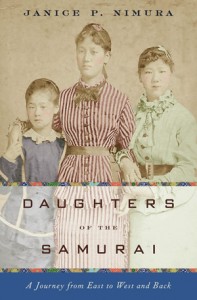 Daughters of the Samurai describes the journey begun in 1871, of five young girls who were sent by the Japanese government to the United States. Their mission: learn Western ways and return to help nurture a new generation of enlightened leaders in Japan. Raised in traditional samurai households during the turmoil of civil war, three of these unusual ambassadors—Sutematsu Yamakawa, Shige Nagai, and Ume Tsuda—grew up as typical American schoolgirls. Upon their arrival in San Francisco they became celebrities, their travels and traditional clothing exclaimed over by newspapers across the nation. As they learned English and Western customs, their American friends grew to love them for their high spirits and intellectual brilliance. The passionate relationships they formed reveal an intimate world of cross-cultural fascination and connection. Ten years later, they returned to Japan—a land grown foreign to them—determined to revolutionize women’s education. Based on in-depth archival research in Japan and in the United States, including decades of letters from between the three women and their American host families, Daughters of the Samurai is beautifully, cinematically written, a fascinating lens through which to view an extraordinary historical moment.”
Daughters of the Samurai describes the journey begun in 1871, of five young girls who were sent by the Japanese government to the United States. Their mission: learn Western ways and return to help nurture a new generation of enlightened leaders in Japan. Raised in traditional samurai households during the turmoil of civil war, three of these unusual ambassadors—Sutematsu Yamakawa, Shige Nagai, and Ume Tsuda—grew up as typical American schoolgirls. Upon their arrival in San Francisco they became celebrities, their travels and traditional clothing exclaimed over by newspapers across the nation. As they learned English and Western customs, their American friends grew to love them for their high spirits and intellectual brilliance. The passionate relationships they formed reveal an intimate world of cross-cultural fascination and connection. Ten years later, they returned to Japan—a land grown foreign to them—determined to revolutionize women’s education. Based on in-depth archival research in Japan and in the United States, including decades of letters from between the three women and their American host families, Daughters of the Samurai is beautifully, cinematically written, a fascinating lens through which to view an extraordinary historical moment.”
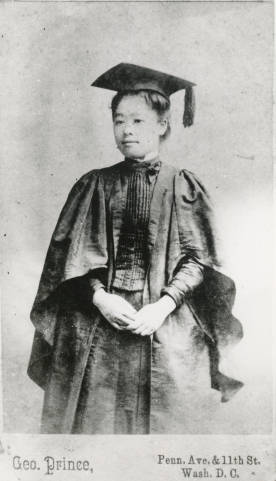
Ume Tsuda portrait, 1890. Bryn Mawr College Special Collections.
One of these young women, Ume Tsuda, attended Bryn Mawr College. Upon her return to Tokyo, she founded a similar institution for Japanese > women, which grew into the important and prestigious Tsuda College of today. The connection between Bryn Mawr and Tsuda Colleges has remained strong over the years and sparked a host of connections between Tri-Co colleges and Japan over the years.
Nimura will visit with staff and students in Taylor Hall from 1:30-2:30pm today, an informal opportunity to discuss the book and women’s international education initiatives. She will also speak to students in HIST 303: History in Public: Race, Gender, and Campus Memory from 3-4pm.
- For more on Japanese ties to U.S. women’s education, read Febe Pamonag’s 2012 article, “‘A Bryn Mawr School in the East: Transpacific Initiatives for Japanese Women’s Higher Education,” in Pacific Historical Review 81.4 [link to full text on Tripod].
- For more on Janice Nimura, visit the author’s website.
“Sisters Launch Digital Archive” in the Alumnae Bulletin
Thanks to the Bryn Mawr Bulletin for featuring our seven institution collaboration, College Women: Documenting the History of Women in Higher Education in the November 2015 issue, which also features an important set of “Letters to the Editor” on the topic of Black at Bryn Mawr. We look forward to sharing our work with more alumnae/i in the new year!
Read more at the Bulletin site, here, and explore the College Women site online at collegewomen.org.
‘College Women’ Goes West: DLF Forum 2015
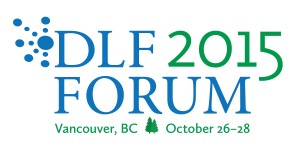 We’re in beautiful Vancouver, BC this week for the Digital Library Federation Forum. On Tuesday afternoon, Greenfield Director Monica Mercado, Bryn Mawr College digital collections librarian Rachel Appel, and Vassar College Libraries digital initiatives librarian Joanna DiPasquale will be presenting a project update on our archives portal, College Women: Documenting the History of Women in Higher Education.
We’re in beautiful Vancouver, BC this week for the Digital Library Federation Forum. On Tuesday afternoon, Greenfield Director Monica Mercado, Bryn Mawr College digital collections librarian Rachel Appel, and Vassar College Libraries digital initiatives librarian Joanna DiPasquale will be presenting a project update on our archives portal, College Women: Documenting the History of Women in Higher Education.
There’s a few ways to follow along:
- At DLF? Join our session in Ballroom I [Sched link here].
- Twitter: #DLFforum
- Crowdsourced note taking: Google Docs
- Livestream (starting at 1:30 PDT, 4:30 EST): sign up to receive login information.
We’re looking forward to presenting with the University of Virginia Scholars Lab project Take Back the Archive, a public history project created by UVa faculty, students, librarians, and archivists to “preserve, visualize, and contextualize the history of rape and sexual violence at UVa, honoring individual stories and documenting systemic issues and trends.” How can digital women’s archives work together and share in other conversations after we return to Bryn Mawr?
Black at Bryn Mawr: What’s Next?
Featured
* cross-posted from the Black at Bryn Mawr blog *

Good question!
I’ve been invited by the Bryn Mawr College Pensby Center to kick off this year’s Diversity Conversations programming – this Wednesday, September 30 at noon – with a look at the past, present, and future of the Black at Bryn Mawr project. During 2015-2016, I will continue to manage the project, providing new research and integrating it with my teaching and the work of the Greenfield Digital Center. I feel the loss of the project’s creators, Emma Kioko ’15 and Grace Pusey ’15 greatly — their energy and expertise made Emma’s idea for a Black history walking tour real, and far more successful than we ever could have imagined at this time last year. Our students graduate, and move on in their research and careers; talk of sustainability for campus history projects in the small liberal arts college environment must reflect this.
For those who can not attend the conversation, I am making my slides available via Slideshare (click here) and welcome comments and further questions below. Today’s presentation also dovetails with the work I am just beginning as a co-organizer of the 2016 NCPH Working Group “Campus History as Public History,” which is taking applications through October 15, 2015. Can we create best practices for these kinds of projects?
As always, the conversation also continues on Twitter: #BlackatBrynMawr and #campushistories.
Greenfield on the Road: Fall 2015
Featured
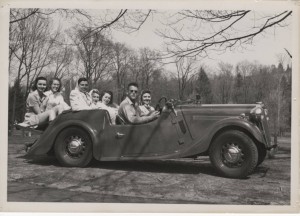
Students Take a Drive, ca. 1940s, Mount Holyoke Archives and Special Collections via our new archives portal, collegewomen.org.
With the Fall semester underway, I’ve been scheduling travels to share our work with digital women’s history and women’s education archives with colleagues around North America, and right here on Bryn Mawr’s campus. If you’re attending one of the following events, do introduce yourself – it’s a pleasure to share our collaborative work in women’s education history with new colleagues and old friends. [Unfortunately, my rental car doesn’t look half as snazzy as the one Mount Holyoke students took for a spin on collegewomen.org!]
September 19, 2015 | UNYWHO (Upstate NY Women’s History Organization)
“Digital Histories of Women: Projects and Possibilities”
Geneva, NY
September 30, 2015 | Bryn Mawr College Pensby Center Diversity Conversations
“Black at Bryn Mawr: What’s Next?”
Bryn Mawr, PA
October 27, 2015 | DLF Forum
“College Women: A Collaborative Cross-Institutional Archives Portal” (co-presenting with Rachel Appel and Joanna DiPasquale)
Vancouver, British Columbia
January 9, 2016 | American Historical Association Annual Meeting
“Archives Praxis: Supporting Independent Study and Experiential Learning in Special Collections” as part of the panel Teaching History Through Archives.
Atlanta, GA
In the meantime, you can also find me walking campus as part of the Black at Bryn Mawr project, which has two upcoming public walking tours: Saturday, October 3 at 2:30 pm (as part of Bryn Mawr College alumnae volunteer summit) and Friday, October 23 at 2:00pm (as part of Bryn Mawr College Family Weekend). These tours meet in front of Thomas, rain or shine, and all are welcome. Spring 2016 tours, including one during Reunion weekend, will be listed on the website when they are scheduled, so stay tuned!
College Women: A Collaborative Cross-Institutional Archives Portal
Featured

Bryn Mawr College archery team, undated, via collegewomen.org.
In June, we announced the launch of College Women: Documenting the History of Women in Higher Education (collegewomen.org), a project of the seven institutions once known as the “Seven Sisters” colleges. With a one-year Foundations planning grant from the National Endowment for the Humanities, we developed an archives portal that brings together–for the first time online–digitized letters, diaries, scrapbooks and photographs of women who attended the seven partner institutions: Barnard, Bryn Mawr, Mount Holyoke, Smith, Vassar, Wellesley, and Radcliffe (now the Schlesinger Library, Radcliffe Institute for Advanced Study, Harvard University).
This summer we put the finishing touches on a white paper documenting our collaboration for the NEH Division of Preservation and Access, Humanities Collections and Reference Resources. The white paper joins our application narrative, freely available on the NEH site; both serve as useful documentation for thinking through collaboration across multiple institutions. The white paper, in particular, makes the case for finding ways to collect geographically disparate collections in a vital and sustainable site, and over the long term, using that site to stimulate significant new work in women’s history. But, as we wrote, the project partners also saw a secondary goal of creating an open-source infrastructure and set of procedures that could be adapted by other institutions interested in developing their own subject-based digital collections. Our white paper, its accompanying standards documents, and the site architecture, design and accompanying documentation available through Barnard College’s GitHub, are all readily available for other initiatives interested in pursuing this approach.
To read more, download the “History of Women’s Education Open Access Portal Project” from the Bryn Mawr College repository, here.
Our work on this project is ongoing and collaborative. College Women is currently available in a beta version, featuring 300 photographs, letters, diaries and scrapbooks from the seven partner institutions. As more of our historical documents are digitized and catalogued, we plan to expand the content of the site, and continue to write new grants towards these goals.
Going to DLF? College Women project team members Rachel Appel (Bryn Mawr College), Monica Mercado (Bryn Mawr College), and Joanna DiPasquale (Vassar College) will discuss the collaboration as part of the program on Tuesday, October 27.
We continue to welcome feedback on the site, in the comments below, and through a form on the College Women homepage.
Seven Sisters Partners Launch New Archives Project
With the support of a one-year Foundations planning grant from the National Endowment for the Humanities, the seven women’s colleges once known as the “Seven Sisters” launch College Women: Documenting the History of Women in Higher Education (www.collegewomen.org).
College Women brings together—for the first time online—digitized letters, diaries, scrapbooks and photographs of women who attended the seven partner institutions: Barnard, Bryn Mawr, Mount Holyoke, Smith, Vassar, Wellesley, and Radcliffe (now the Schlesinger Library, Radcliffe Institute for Advanced Study, Harvard University). These seven colleges, historically regarded as the equivalent of the Ivy League before those schools admitted women, have long stood at the forefront of women’s higher education in the United States, educating many of the most ambitious, socially conscious, and intellectually curious women in the country. As they were exposed to the novel academic and social landscapes of college life, many of these women actively chronicled their student experiences and ambitions through extensive letter writing, diary-keeping, scrapbooking, and photography. Their materials, which document a new era of women’s campus cultures, have been preserved in the libraries of the seven schools and serve as a rich resource for understanding a wide range of issues in women’s history and beyond. College Women makes these treasures available online and searchable together for the first time, enabling researchers to consider student materials in a larger context of movements for women’s education and expanded opportunities for women in American society.
College Women is currently available in a beta version, featuring 300 photographs, letters, diaries and scrapbooks from the seven partner institutions. The institutions will be expanding the content in the coming years as more historical documents are digitized and catalogued. This innovative project also demonstrates the potential for creating new research opportunities for students and scholars when institutions collaborate on building digital collections. Continue reading
